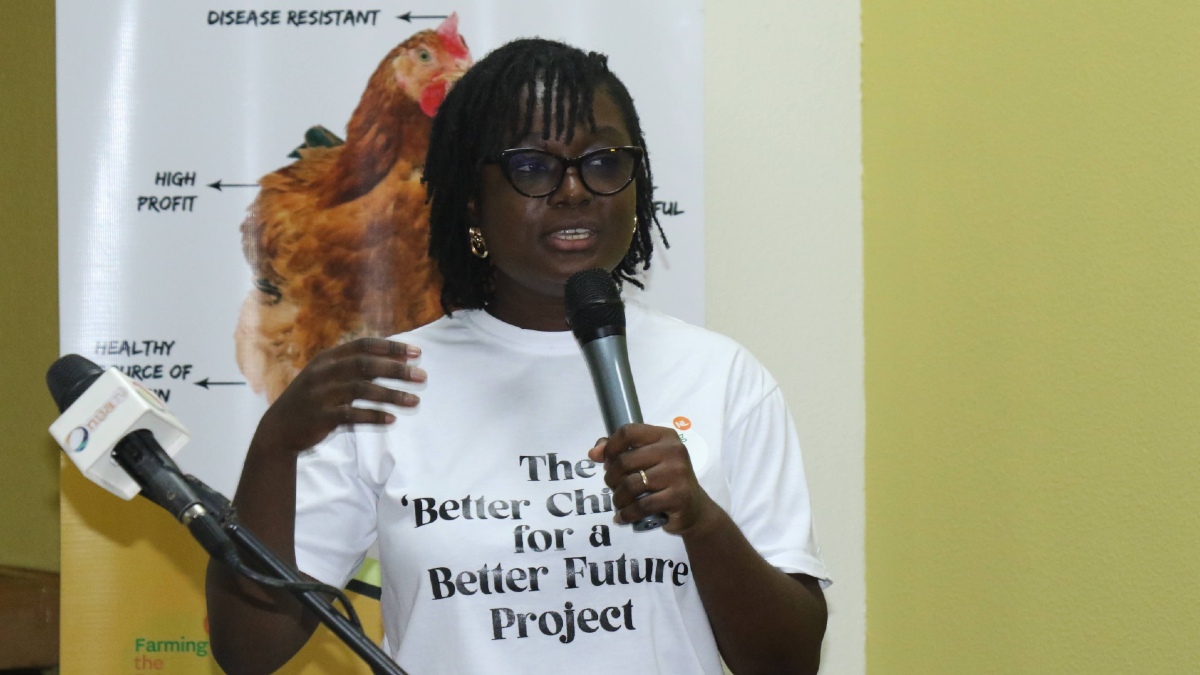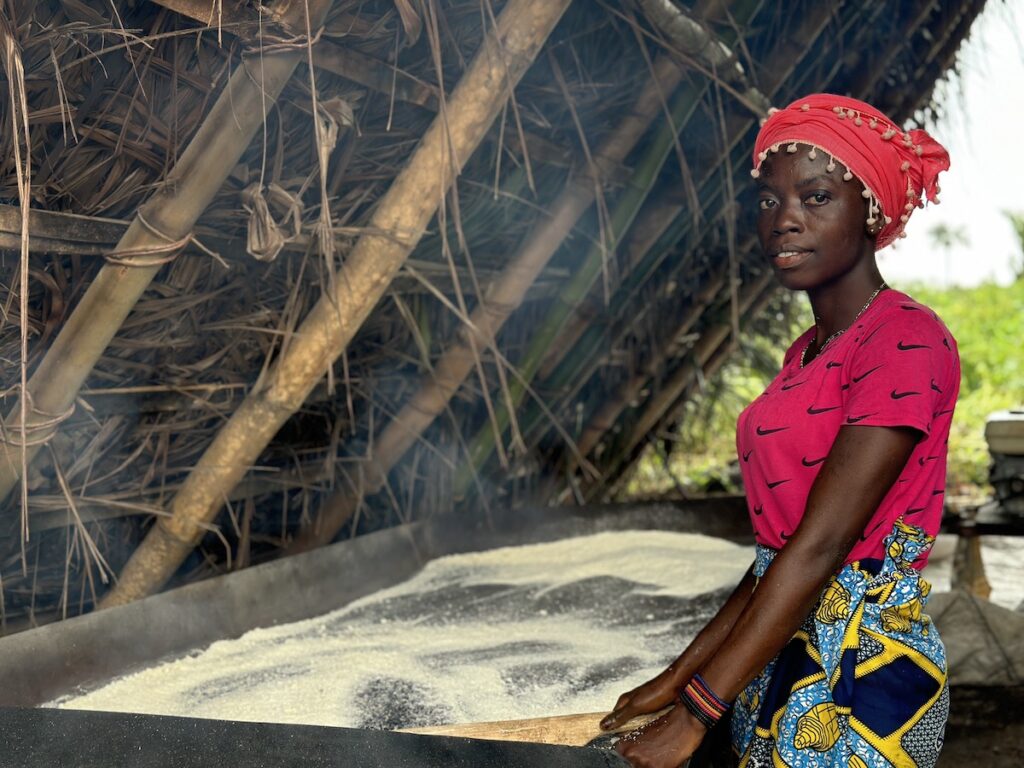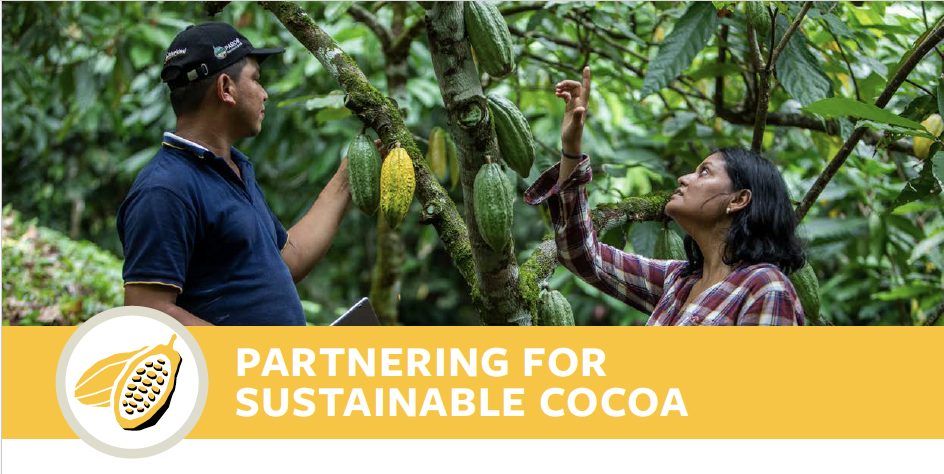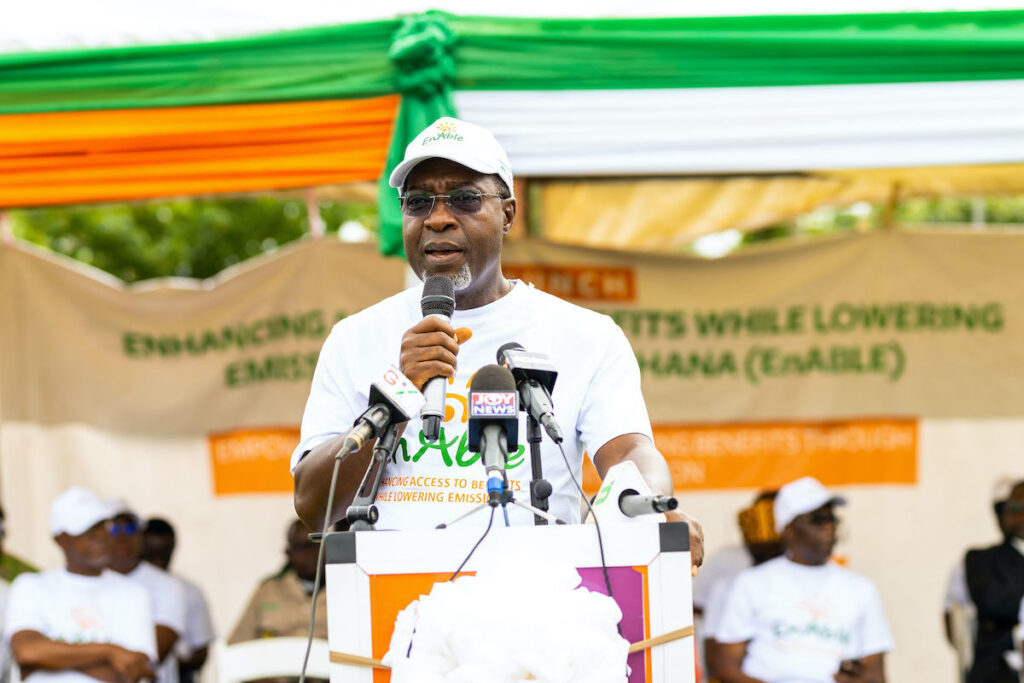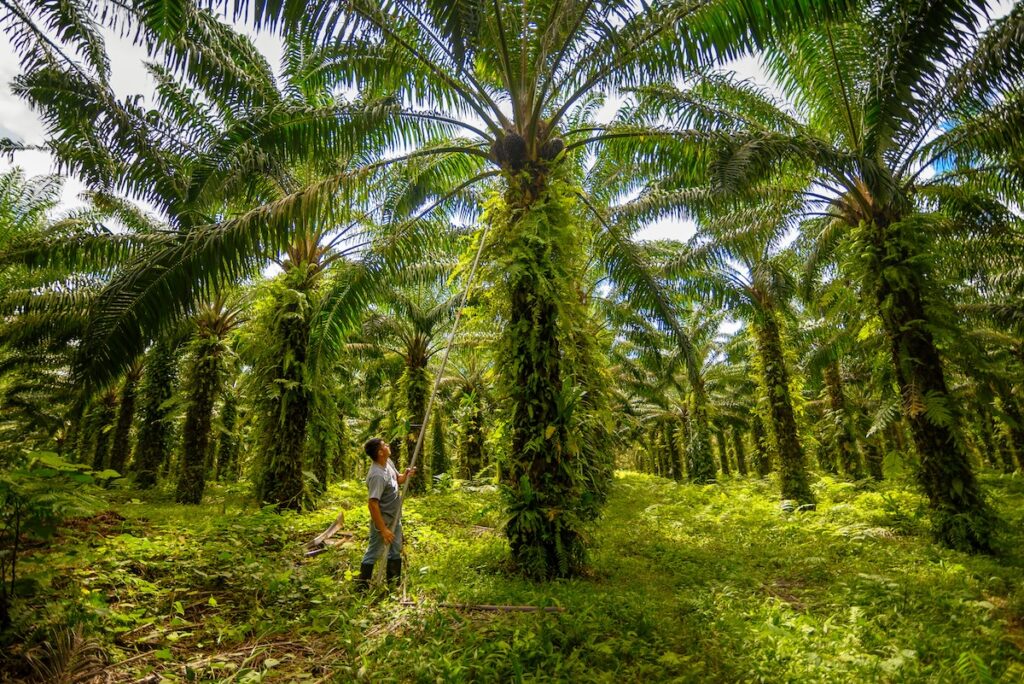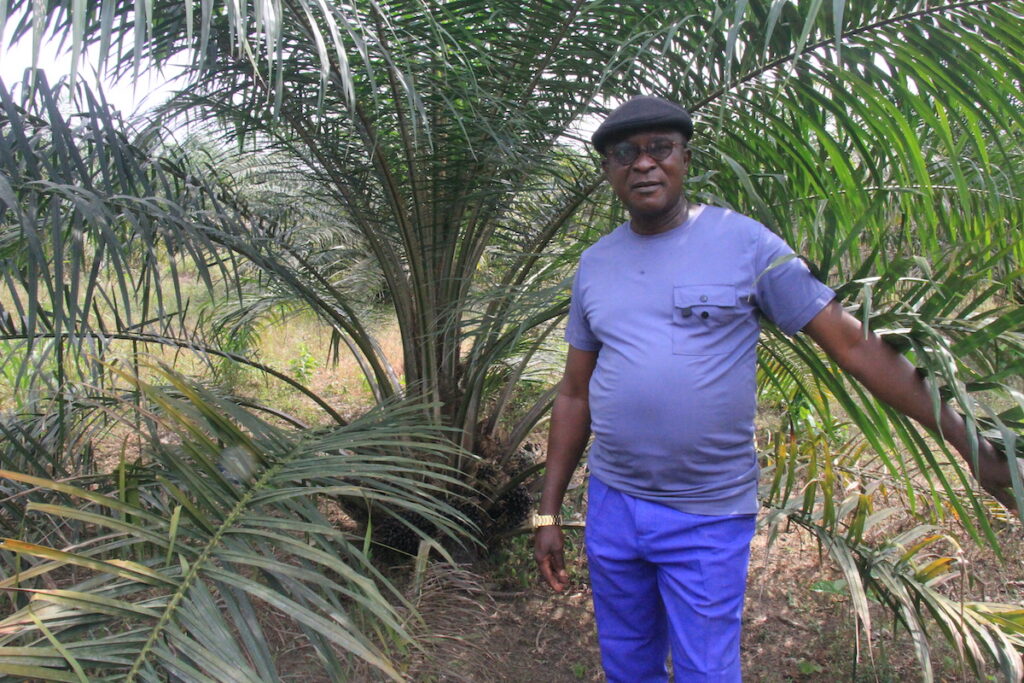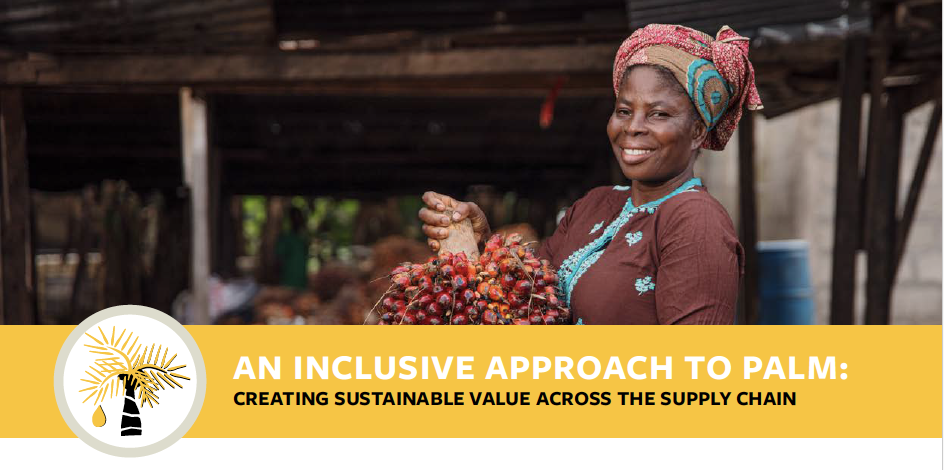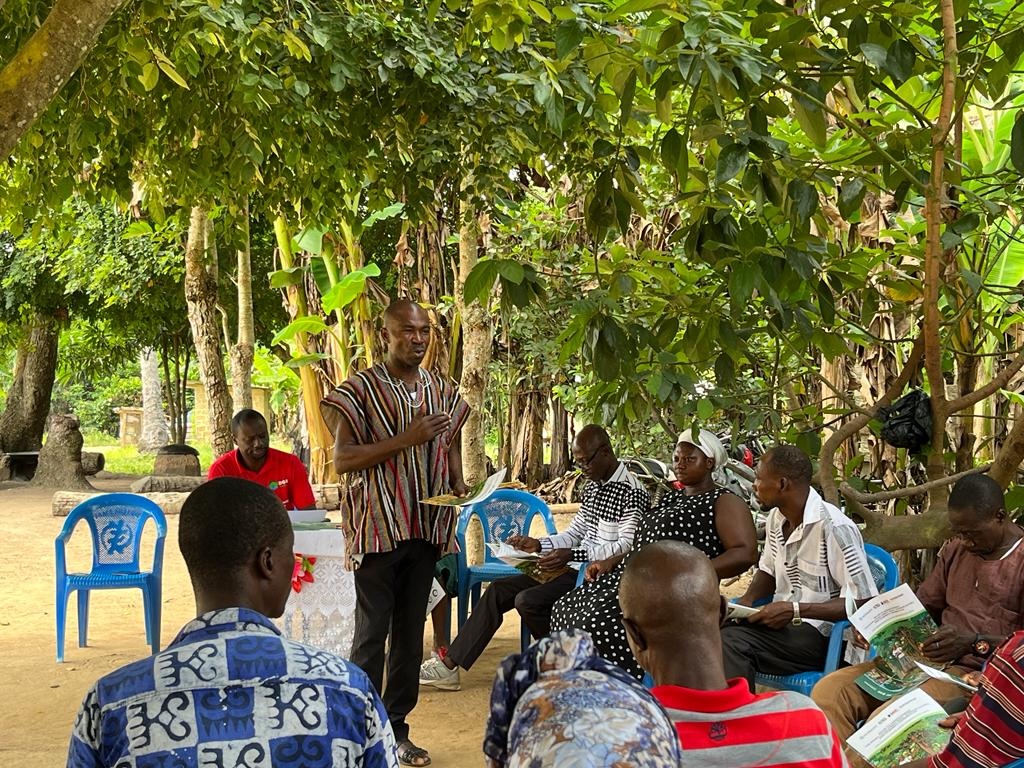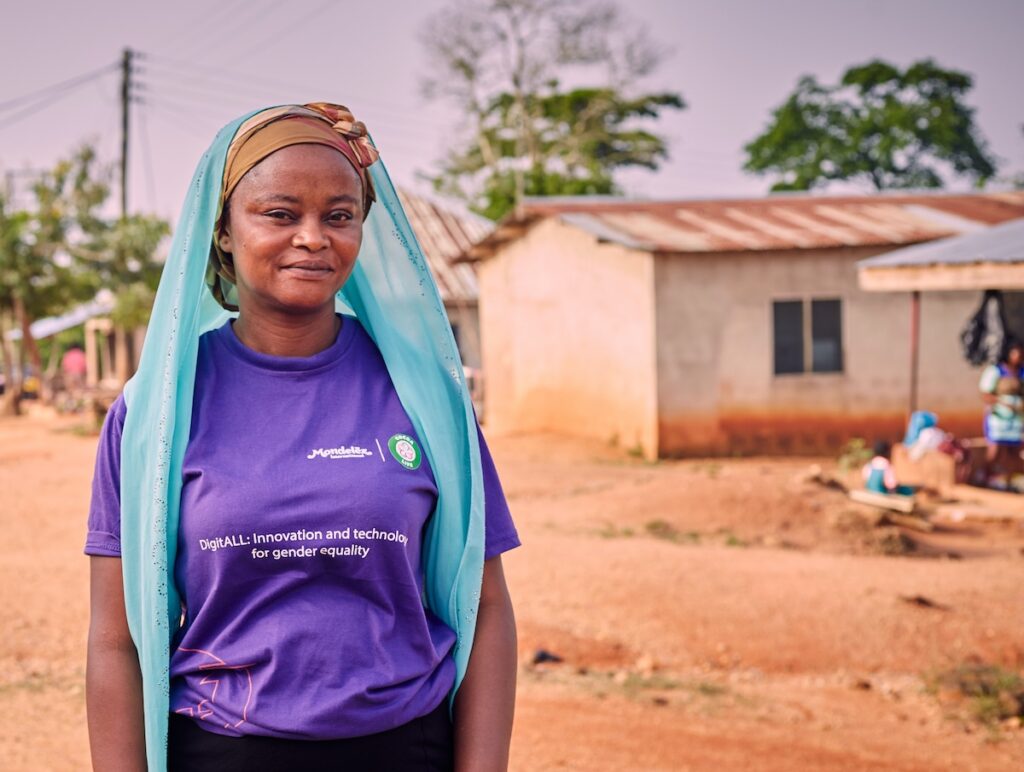Innovating to confront unmet market demands
Better Chicken for a Better Future, which focuses on enhancing the value chain for locally-raised and processed chicken, comes on the heels of significant challenges that confront small-scale poultry farming in Ghana. The national demand for poultry meat is about 400,000 metric tonnes, with local production meeting only 14% of the demand. Frozen chicken imports account for 45% of the demand, and the remaining 41% is recorded as a shortfall. Over the last decades, the share of imports in the domestic consumption of poultry meat has increased enormously.
With skyrocketing feed prices, lack of quality inputs due to poor quality local hatcheries and vaccines, weak links to input suppliers and markets, and the high cost of local poultry production, local farmers are unable to meet consumer preferences and compete with imported poultry products.
The project will empower 500 farmers — including 30% women and youth — with access to quality day-old chicks, feed and hygiene products, that they will have access to through the project’s breeder farm, hatchery and feed mill. Farmers also benefit from training in best husbandry practices, farm management, agribusiness development, financial management and life skills, among others.
Implementers are piloting the project in five districts of the Ashanti region in Ghana.
Reducing the dependency on imports and creating jobs in the Ghanaian poultry sector to improve our self-sufficiency is critical to national development. This is what the ‘Better Chicken for Better Future’ project seeks to contribute to, in line with the government’s Rearing for Food and Jobs policy.
Isaac Kwadwo Gyamfi, Solidaridad regional director, West Africa
Leveraging multi-stakeholder partnerships
The project gathers a seven-member consortium: IGrowChicken, Hendrix Genetics, Schippers Export B.V, Transnational Agri, and Nutreco Africa, with Solidaridad West Africa and AgriDEPOT as local implementing partners.
Eric Mooiweer, director of IGrowChicken, said he was excited that the project brought together multiple partners as well as the expertise needed to manage all the stakeholders in the value chain, thereby making for a cost-effective initiative.
For the project to be viable, it is important that a good breeding stock, one that is resilient to African conditions, produces tasty meat and has low mortality, be available to meet consumer needs. It is gratifying to note that Hendrix Genetics is providing the breeding stock to meet this need.
Eric Mooiweer, IGrowChicken director
The high cost of feed is one of the challenges the project would address. With the support of Trouw Nutrition, the project’s feed mill will source local raw materials to produce consistent quality feed that is cost-effective for farmers and to reduce international imports.
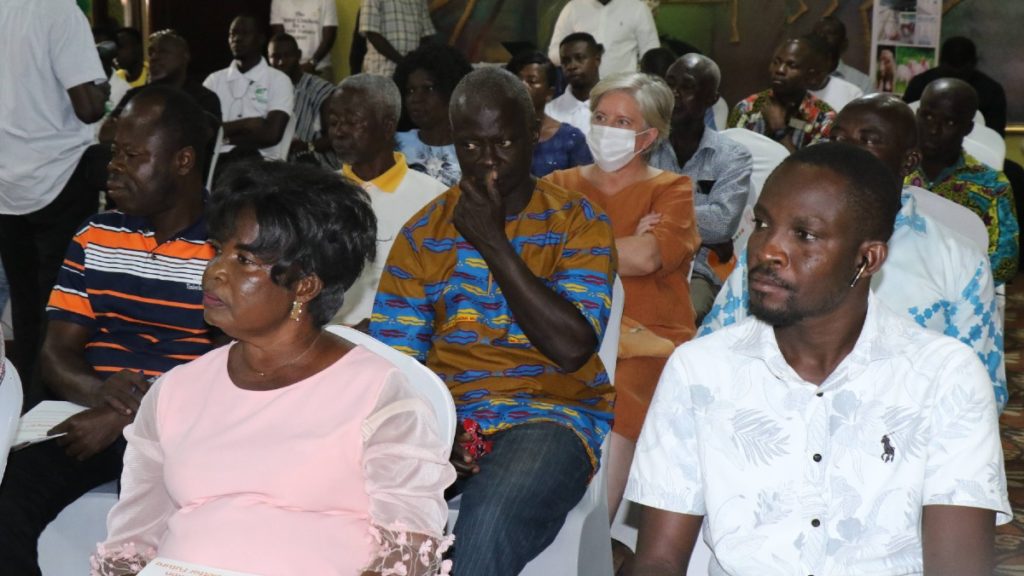
The project, which is supported by the National Netherlands Enterprise Agency, aligns with the policies of the Dutch Government, which is aimed at developing a long-term competitive poultry sector.
Anne-Katrien Denissen, the Private Sector Development Coach at the agency, congratulated the partners on the launch of the project and indicated that the National Netherlands Enterprise Agency is committed to providing subsidies for projects that promote trade and investment in the poultry sector through strategic private sector collaborations.
Together with its international partners, the Dutch agrifood and horticulture sectors aim to promote a sustainable food system and create social and economic opportunities worldwide.
Through public-private partnerships, the Netherlands strives toward greater cooperation between businesses, governments and knowledge institutions to improve processes, accelerate innovation and reduce climate impact across the supply chains.
Anne-Katrien Denissen, National Netherlands Enterprise Agency
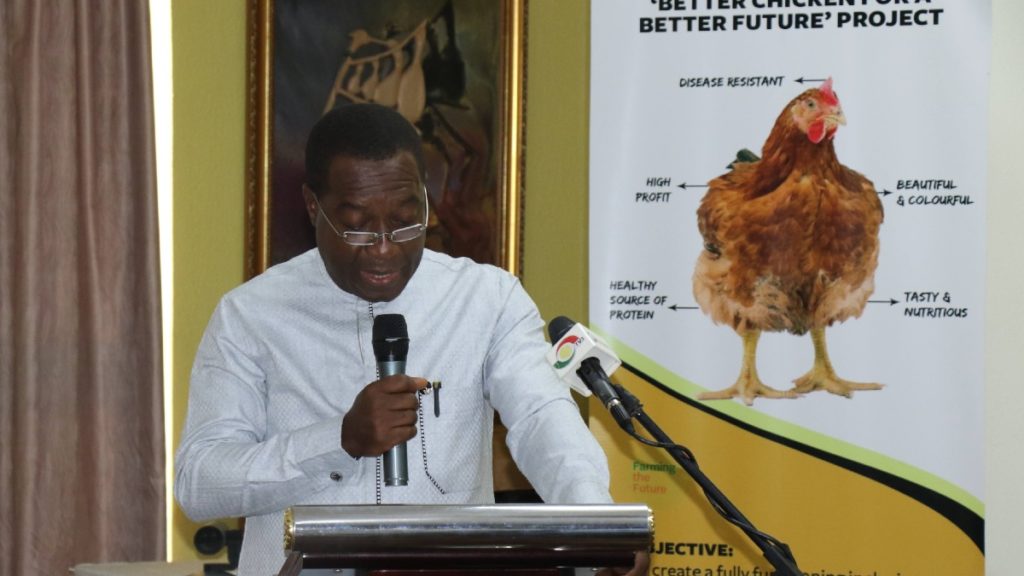
Solidaridad’s role in the project
Solidaridad and partners will demonstrate that if the needed investment is injected into the broiler industry through private-public partnerships, this will result in a competitive and efficient poultry industry that will provide employment for Ghanaian youth and improve the livelihoods of farmers.
“Solidaridad’s long-standing experience in increasing access to finance to smallholder farmers through the Village Savings and Loans Association scheme, coupled with our existing partnerships with key financial institutions in the country will ensure that access to formal financial services is not a barrier for beneficiary farmers to produce sustainably,” said Solidaridad’s Isaac Gyamfi.

